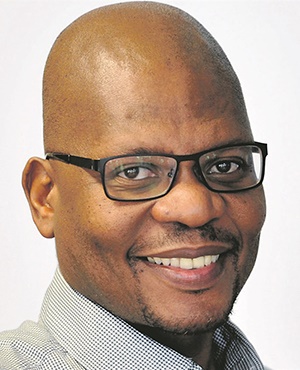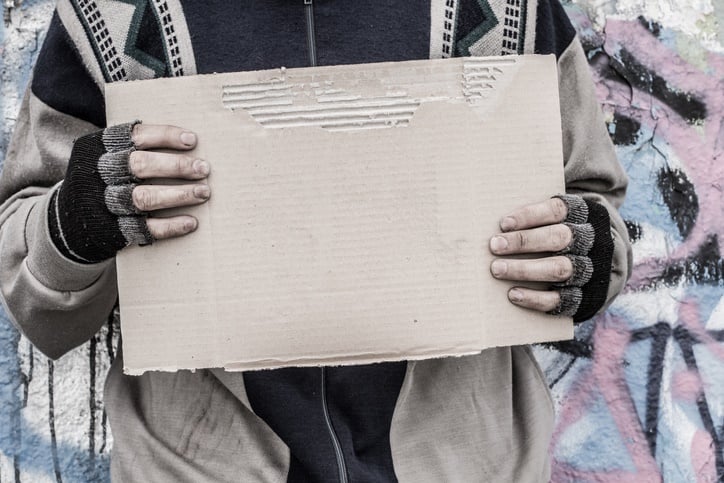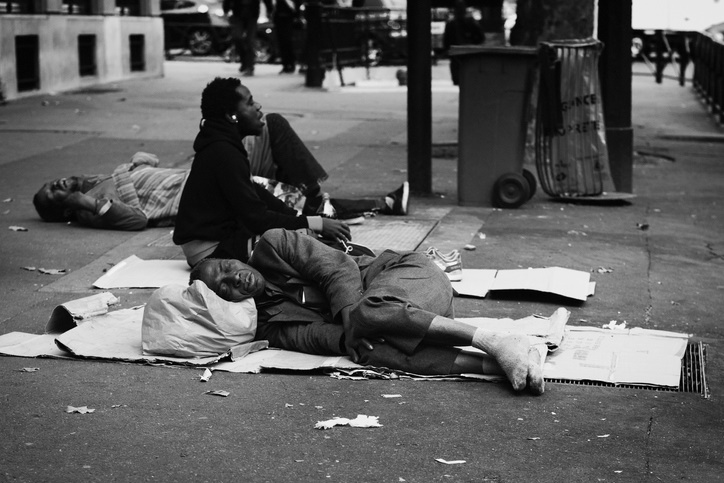
If this sounds like a right-wing rant, be assured it is not meant to be.
On my first visit to Ethiopia in 2000, we were warned by South African diplomats not to make eye contact with the legions of beggars who make the navigation of Addis Ababa’s streets a nightmare.
But nothing could have prepared us for what we were to witness and experience.
The beggars were menacing – they came right up to the windows of the minibus we were moving around in and even knocked on our windows.
It was hard not to make eye contact, and we quickly realised why we had been given that warning.
When you did make eye contact, as this lowly newspaperman and some colleagues did on occasion, the beggars assumed you were being receptive and became even more enthusiastic.
This, in turn, would signal to other beggars that this was a friendly vehicle and they would then all descend on you.
Yhoh, the trauma is still with me to this day. On future visits, I was better prepared and more streetwise, so to speak.
Little did I anticipate back then that this begging pandemic would one day break out in sunny South Africa, yet pulling up to a traffic light or a stop street has become a hazardous affair.
It does not matter which major city you are in, you will most likely be confronted by beggars at EVERY traffic light.
Sometimes I feel as if my friends from Addis Ababa followed me home.
At first, it was the rent-a-child women who subjected little ones to scorching sun and freezing weather in a bid to tug at motorists’ hearts.
One thought the police and social development authorities would do something about this abuse.
Then came blind Zimbabwean beggars who had fled that country because of the lack of social services there.
Initially, they would occupy a traffic intersection here and there, accompanied by a sighted person.
Then, apparently, word got back to Zimbabwe that there was gold down south. Before you knew it, every intersection was occupied.
As a humanitarian and internationalist, I felt sympathy for these victims of Robert Mugabe’s tyranny and destructive policies. Anyway, they are now a fixture on the street corners.
Then came the older local beggars who were clearly inspired by this growing industry. They claimed their spots, sometimes clashing with the established settlers.
The next wave was very disconcerting. It constituted young people, mostly male, who were of high-school age.
They quickly filled up the streets, performing some dances and circus tricks. Mostly, they just begged.
If you left your window open, you were enticing them. Being on your cellphone was a more direct invitation.
These young people dominate the intersections. You don’t need to look closely to see that most of them are so high that you would not be able to tell a Duduzane from a Duduzile.
And, as the years pass, they are becoming ever more inattentive to soap and water.
They are a lot more aggressive than the older beggars and seem to believe that you have no option but to give them what they want.
If you try to ignore them, they will stare until you take notice. They even curse you and gesticulate.
A colleague once remarked that they behave as if you made an appointment to meet them there and are now reneging on your deal.
There are several things at issue here. One is that this phenomenon is just not easy on the eye.
The beggars on our city streets are a terrible eyesore, not only for visitors, but also for those of us who live here.
Another issue is that – regardless of what their defenders might say – they are a security hazard.
Letting drugged up youngsters occupy busy intersections is inviting trouble. There are many cases where motorists have been harmed or come close to being harmed by them.
Most importantly, this is a massive social issue that is not being treated with urgency.
One understands that the proliferation of beggars is the result of a combination of unemployment, poverty, the instability of family structures and the fraying of community cohesion.
This needs a response from national, provincial and local authorities.
The heavy-handed approach gets the nongovernmental organisations up in arms, but the authorities cannot be expected to go to street corners and politely plead with the zonked-up youngsters to vacate their spots.
A little kragdagheid is necessary.
South Africa boasts an impressive social security net – one of the best in the developing world.
We should be asking why these people who populate our intersections are falling through this net even though they qualify for some form of indigent support. Something is not making sense here.
There is also the question of how, in a country where basic education is compulsory and affordable, children of school-going age can be found at the same spots day after day without any action being taken.
Then there is the challenge of where you take them when you remove them from the streets as many of them have no intention of returning to the places they once called home.
A holistic and sustainable approach is required that will involve not only government, but various sectors of society.
But let us not be in denial – this is crisis of massive proportions.
| |||||||||||||
| |||||||||||||




 Publications
Publications
 Partners
Partners










